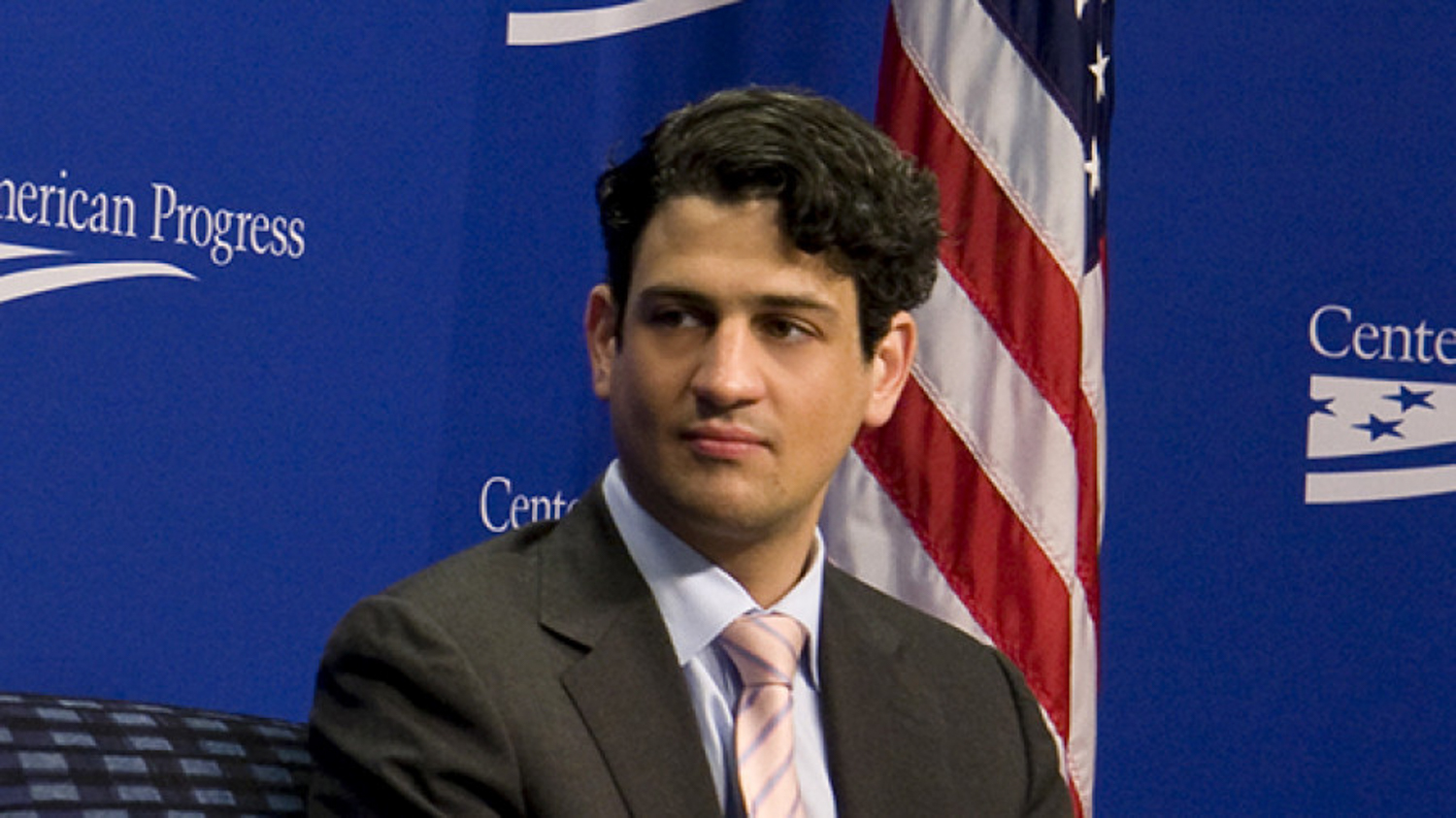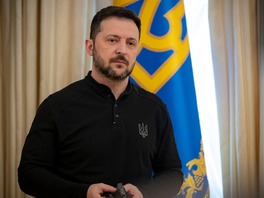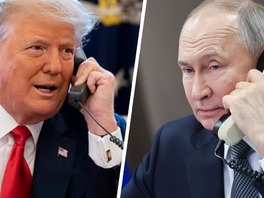The scandal involving Joe Biden's son in the Ukrainian company will affect the Ukrainian-American relations, but it will not make much difference. In relations between Ukraine and Russia a lot will depend on the positions of Europe and the United States. And the President of Ukraine Volodymyr Zelensky will have difficult negotiations with Vladimir Putin, in which he will initially be in a losing position. This is what American political scientist SAMUEL CHARAP, senior researcher of the Research Corporation RAND told in the interview to "Apostrophe".
Ukrainegate
- What is the current attitude to Ukraine among American politicians, political scientists and experts?
- Since the moment when Ukrainegate has been discussed in recent weeks, it has turned into a political factor. It's not about Ukraine. In broad circles, it went beyond the Washington ring road. Those who do not support trump, believe that Biden also has a history (the son of the leader of the democrats was involved in the scandal with the company Burisma Group, - "Apostrophe"). In this story a lot of issues are unclear. Despite what actually happened or not, one thing is clear - it will not be beneficial neither to Ukraine, nor to the United States.
Experts are looking closely at the newly elected President and waiting for him to provide clear signals about what his plans and approaches are. There are those who see a window of opportunity for a positive change. And there are those who fear the negative consequences. But the new President in Ukraine is legitimate, no matter how he is treated.
In comparison to Poroshenko, Zelensky is not burdened with the baggage that his predecessor had in connection with the topics of the election campaign, what was during his term. Therefore, he has more space for maneuver, especially in connection with the conflict, than Poroshenko would have after the election.
- What is the attitude in the US to the scandal between Furman, Parnas and Kolomoiskyi?
- Each player in this game has its own interests, which are not related to the national interests of Ukraine or the United States. It is not about the priority of the foreign policy of the USA or the state policy of Ukraine. This is problematic when a person (Trump's lawyer Rudolf Giuliani, "Apostrophe") is not an official, but his statements are perceived as official statements by the White House. And this creates some difficulties for everyone.
The aggression of the Russian Federation
- Is it possible the situation in Transnistria and the occupied regions of Georgia can be aggravated?
- The history of these regions is different and the dynamics are different. If there are links between these conflicts, it is not the main factor that determines outcomes. What is happening there is not a determining factor for the events in Donbas.
- Putin's rating is gong down. Even Russians are beginning to say that this may be the cause of another adventure. Should we expect aggressive actions on his part?
- This is one of the theories about why Putin acts one way or another. I'm not a supporter of this version. On the other hand – there is no second Crimea. Crimea has always occupied a special place in the public consciousness of Russians. I don't see an opportunity to replay this scenario in other territory.
- For example, Odessa region is located near Transnistria.
- If they did not take this step in May of 2014 after the situation concerning the House of Trade Unions, I doubt it. Putin is not all right, but that does not mean that he will start a war. I do not see the possibility for a qualitatively greater escalation, which will not lead to even more sanctions.
Negotiations of Zelensky and Putin
- Is it possible that Putin and Zelensky will start contacting directly?
- Poroshenko during some time regularly communicated with Putin by phone tet-a-tet. So why Zelensky won't be able to do it? Ultimately, a person needs to negotiate with the Russian authorities if this person wants to resolve the conflict. This does not mean that it is necessary to start with a bilateral format - a multilateral format can also be effective. I do not judge whether the Normandy format is more appropriate. But if there is progress on the settlement, bilateral contacts at the highest level can not be avoided.
Of course, Zelensky will not negotiate alone. It is unlikely to happen without advisers and ministers. We must admit that the results of past negotiations are ambiguous. Zelensky can be either the best or the worst negotiator. Not all politicians were diplomats before they became politicians. He has something to work on and needs to learn quickly. But if there are good advisers and ministers who will prepare a meeting, he should not be afraid. It is necessary to treat the new President with a degree of caution, given who he was before, that he never negotiated with Putin. But it is impossible to exclude that it will be successful.
- What would you personally advise Zelensky about negotiations with Putin?
- Negotiation is always a bargain. To achieve something, you must be ready for it. One can expect little from Russia only through pressure, that is what the experience of the last five years has shown. Before the start of negotiations, it is necessary to determine the red lines - what they are ready to trade and what they are not. And the worst part is when there are agreements, one acts act like he is not going to keep them. Because the Russian elite has an idea that Ukraine never fulfills any promises. You can say the same about them, of course, but I'm talking about their ideas. Therefore it is necessary to keep the word.
On paper, Ukraine has already gave in to pressue - the special status of the isolated districts of the Donetsk and Luhansk regions, the adoption of a new Constitution, decentralization, amnesty. This is in the Minsk agreements (paragraph 11): "constitutional reform in Ukraine with the entry into force by the end of 2015 of the new Constitution, which assumes decentralization as a key element, taking into account the characteristics of the isolated districts of the Donetsk and Luhansk regions, agreed with representatives of these areas, as well as the adoption of permanent legislation on the special status of the the isolated districts of the Donetsk and Luhansk regions". For a number of reasons, this was not implemented. Poroshenko also made concessions - at least on paper, he agreed to do it generally. I understand why he signed it – at that moment the danger of war was real. If we are talking about the implementation of the Minsk agreements - it involves concessions on both sides. The question is whether he wanted to do it.
There is an expression - to drive yourself into a corner. Poroshenko also was engaged in it in the election rhetoric. The fact that Zelensky did not do this creates certain opportunities for him, although it does not necessarily ensure success. It will have more "soft" power to affect the hearts of those who live on the other side of the line of demarcation. His "Quarter 95" is a soft power in the long run. The ability to attract supporters not through pressure, but through attractiveness - this is the soft power. And he, coming not quite from the South-East, but from a Russian-speaking family did not speak during the election campaign about the "army, language and faith". Is difficult to become attractive for the residents of Donbass with the message "Armenia, mova, faith". But this does not mean that he can immediately resolve the conflict.
The West and Ukraine
- How can the West help Zelensky in the fight against the Kremlin?
- For Russia, not only Ukraine is the opponent. They partly believe that they are against the United States. Despite the fact that the United States is not a party to the conflict, they are certainly a factor in the conflict. Therefore, they can contribute to its settlement. There is pressure, but we already have a problem with that. If you want to achieve something in international politics, the party you are pushing must understand how it must change its behavior in order to remove this pressure. We put pressure on Russia on so many different occasions that sometimes we do not remember why we adopted this or that sanction. Thus, that party does not believe that if action a is taken, sanction A will also be abolished.
Therefore, it is necessary to contribute to the negotiation process at the highest level. And if you push, then push everyone to sit down at the negotiating table and seriously began to discuss how to move on.
- But the Patriotic society can accept any surrender, even the slightest very painfully .
- Why may Zelensky need to surrender? But according to the latest sociological research, 40% of the population support the special status of the occupied territories. This poll shows that society is ready to compromise for peace. When I say "compromise" , I do not mean "compromise the fundamental interests of the state". And, of course, there will certainly be some "red lines" - and I see no reason to think that Zelensky wants to step over them.
- Pompeo was going to discuss Ukraine with Putin, but this did not happen. What's the meaning of that?
- There are grounds for doubt in Russia's desire to intensify the negotiation process. I see no signs that they are ready to meet at the highest level right now and resolve this issue. There is also a factor of parliamentary elections. They want to understand, if Zelensky is really the master. They are now very cautious, even distancing themselves from involvement in this issue. But this is not the worst option. When Russia acted impulsively, we saw the consequences.
- And what will be the interaction of the US and Europe to resolve the Ukrainian issue be like?
- Walker is in close contact with his German and French colleagues. Friction between the EU and the US is a factor that hinders cooperation in all areas. It's hard to make actions consistent on one issue when you have very strong disagreements on another. This greatly hinders cooperation - that is, prevents the West from having a common voice. But not everything is so simple. The group of the "Big Seven", ambassadors of these countries, is closely coordinated. However, the US-European background remains poor.





